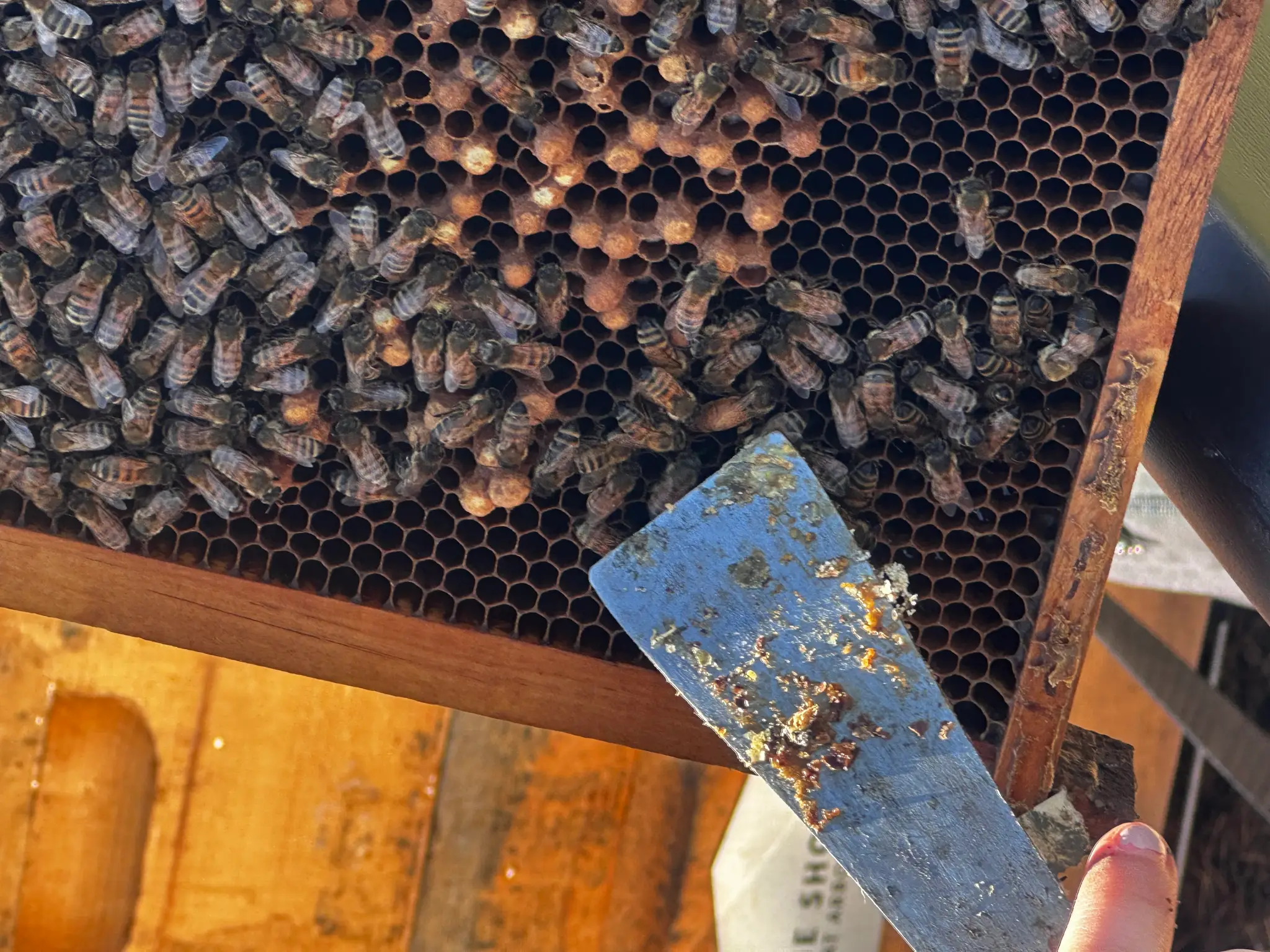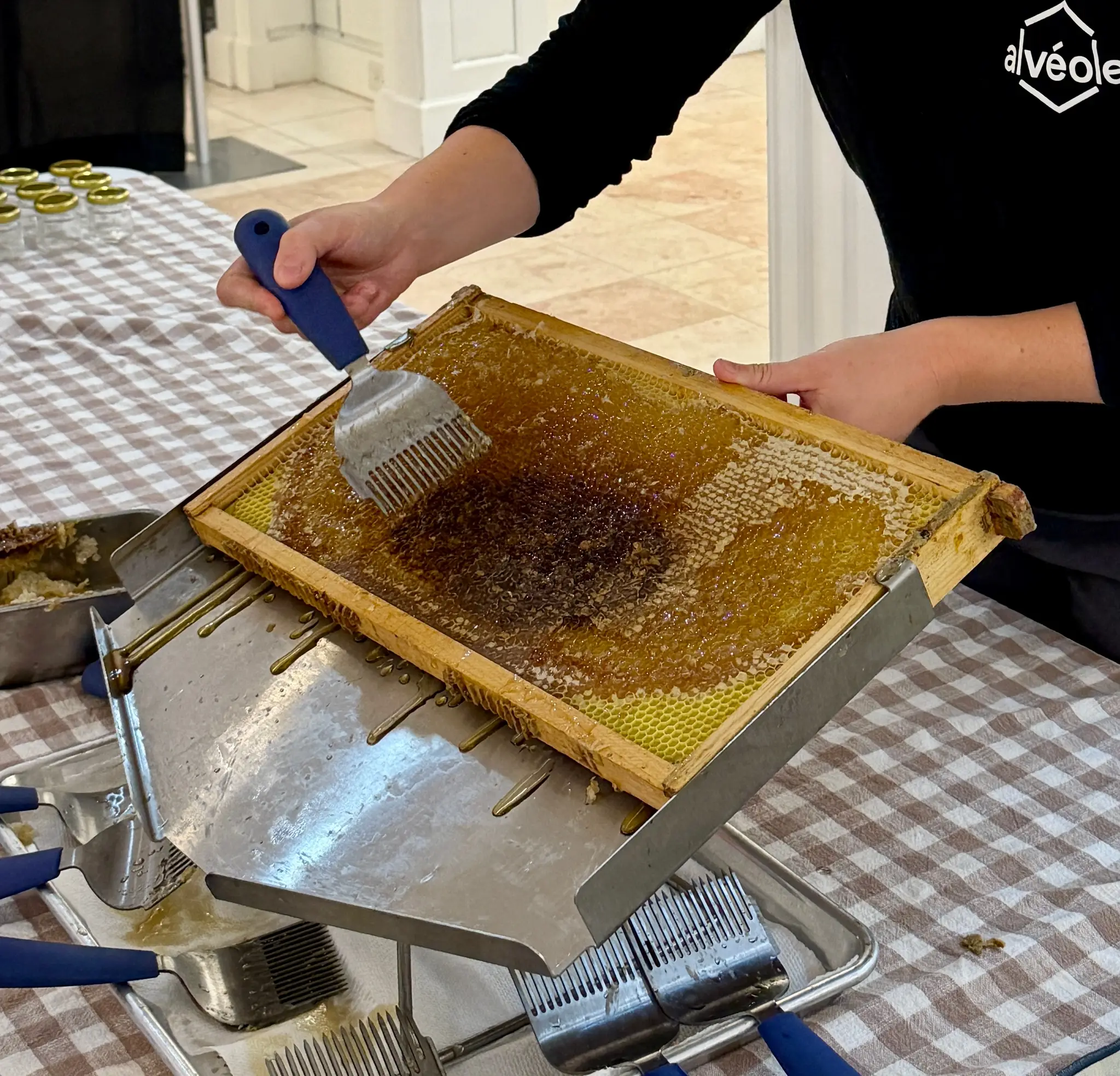
Bees at The Shoppes
Did you know The Shoppes has its own bee hives?
For the last 3 years The Shoppes has had two hives housing tens of thousands of bees each year. Our urban beekeepers from Alvéole keep them healthy, happy and living in the luxury. The hives are located on the north side of Building B - between Cycle Gear and Talbots. You can't miss them in their seasonal pollinator garden.
To see what's up with our bees click HERE.
About Bees:
Honeybees are gentle, purposeful creatures focused on gathering nectar, pollen, resin, and water to sustain their colonies. They only sting when provoked or when their hive is threatened, and unlike wasps, a bee’s sting is fatal to itself. Italian bees, known for their docility, are ideal for urban environments, and organizations like Alvéole have successfully introduced them to schools and businesses with minimal incidents. Many stings attributed to bees are actually caused by wasps, whose retractable stingers leave no trace.
Inside a hive, up to 50,000 bees work in harmony, with roles divided among queens, drones, and workers. The queen, supported by her court, lays thousands of eggs daily, while drones focus solely on mating. Worker bees perform a range of tasks throughout their short lives, from cleaning and nursing to foraging. In winter, bees cluster around the queen to maintain warmth, and strong hives are later split to ensure sustainability. Urban settings offer ideal conditions for bees, with pesticide-free environments, floral abundance, and temperate climates fostering thriving colonies.
Bees play a vital role in pollination, supporting over a third of the food we consume. Urban beekeeping not only produces local honey but also promotes environmental awareness and community engagement. Though honeybees are not native to Minnesota, many wild bee species contribute to local ecosystems. Unfortunately, pollinator populations are in decline due to industrial agriculture and climate change. Shifting to ecological farming practices is essential to protect these crucial species and ensure food security for future generations.


